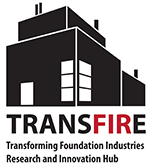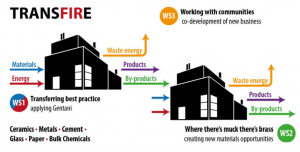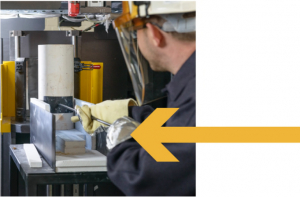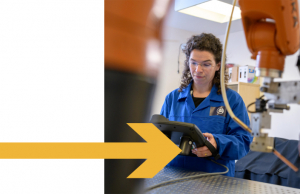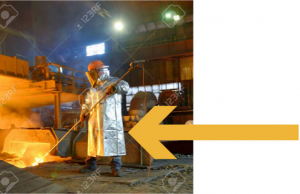Our programme will develop a self-sustaining hub of expertise to support the Foundation Industries’ transformation into non-polluting, resource efficient, modern, competitive manufactories working in harmony with the communities in which they are situated, providing attractive places to be employed with unparalleled ED&I performance. The research objectives will be developed from three parallel initial work streams:
WS1: Transferring best practice
Transferring best practice – applying “Gentani”: Across the FIs there are many processes that are similar, e.g. comminution, granulation, drying, cooling, heat exchange, materials transportation and handling. Using the philosophy Gentani (minimum resource needed to carry out a process) this research would benchmark and identify best practices considering resource efficiencies (energy, water etc.) and environmental impacts (dust, emissions etc.) across sectors and share information horizontally.
WS2: Where there’s muck there’s brass
Where there’s muck there’s brass – creating new materials and process opportunities. Key to the transformation of our Foundation Industries will be development of smart, new materials and processes that enable cheaper, lower energy and lower-carbon products. Through supporting a combination of fundamental research and focused technology development, the Hub will directly address these needs. For example, all sectors have material waste streams that could be used as raw materials for other sectors in the industrial landscape with little or no further processing. There is great potential to add more value by “upcycling” waste by further processes to develop new materials and alternative by-products from innovative processing technologies with less environmental impact. This requires novel industrial symbioses and relationships, sustainable and circular business models and governance arrangements.
WS3: Working with communities
Working with communities – co-development of new business and social enterprises. Large volumes of warm air and water are produced across the sectors, providing opportunities for low grade energy capture. Collaboratively with communities around FIs, we will identify the potential for co-located initiatives (district heating, market gardening etc.). This research will highlight issues of equality, diversity and inclusiveness, investigating the potential from societal, environmental, technical, business and governance perspectives
